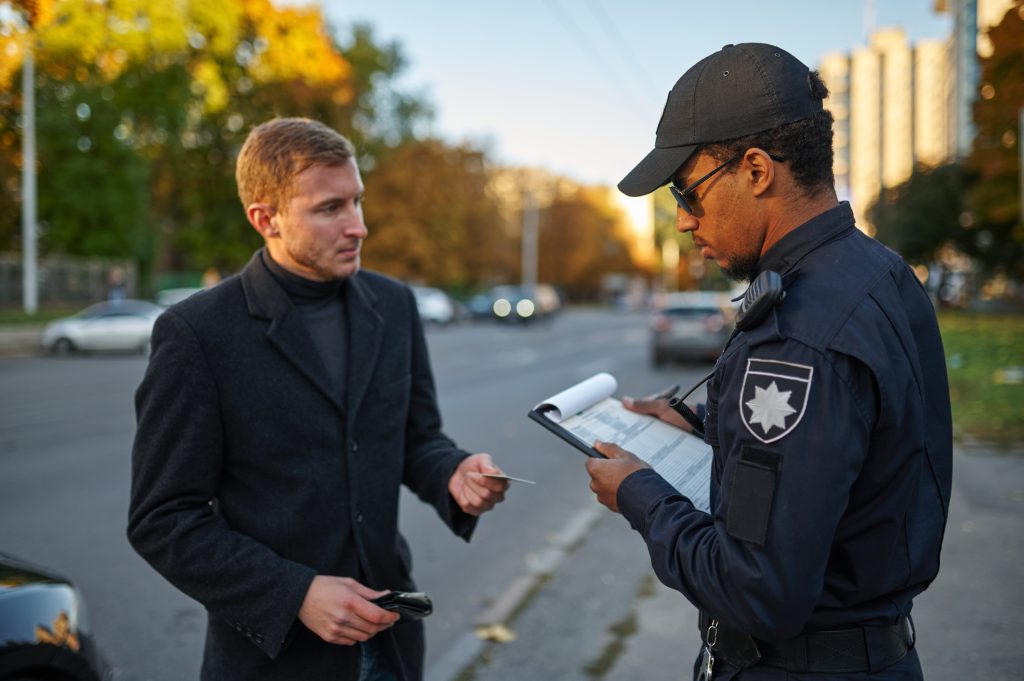What Is Obstructing a Law Enforcement Officer in Washington?

Understanding RCW 9A.76.020, Common Scenarios, and Legal Defenses
In Washington, the crime of obstructing a law enforcement officer is broader than many people realize. While it might sound like a charge reserved for physically interfering with police, it often applies to far less obvious conduct—such as walking away from an officer, refusing to provide ID, or even delaying an investigation.
If you or someone you know has been charged under RCW 9A.76.020, it’s important to understand what qualifies as obstruction, what the prosecution must prove, and how this charge can be challenged in court. At the Law Office of Erin Bradley McAleer, we regularly represent clients facing obstruction charges across Vancouver and Clark County.
The Legal Definition Under RCW 9A.76.020
Under Washington law, RCW 9A.76.020 makes it a crime to:
“Willfully hinder, delay, or obstruct any law enforcement officer in the discharge of their official powers or duties.”
This is a gross misdemeanor, punishable by:
- Up to 364 days in jail
- Up to $5,000 in fines
- A permanent criminal record, if convicted
Obstruction is often charged alongside other offenses—such as resisting arrest, disorderly conduct, or assault—but it may also stand alone.
Common Scenarios That Lead to Obstruction Charges
Refusing to Identify Yourself (Sometimes)
Contrary to common belief, simply refusing to give your name to police is not always illegal in Washington. However, if you’re lawfully detained (such as during a traffic stop or Terry stop), and your refusal delays or interferes with the officer’s investigation, it can form the basis for an obstruction charge.
Walking Away from Police
If an officer is lawfully trying to detain or question you and you walk away, that action may be interpreted as obstructive—especially if it causes the officer to break off their investigation or use force to stop you. The legal line is fact-specific and often contested in court.
Providing False Information
Giving a fake name, false alibi, or misleading statements to police can constitute obstruction. The State must show that the falsehood materially hindered the officer’s work.
Interfering With Another Person’s Arrest
Attempting to physically pull someone away from an officer, standing between an officer and the person they’re trying to detain, or verbally disrupting an arrest can lead to obstruction charges—even if you were not the initial subject of police attention.
Recording Police—When It Crosses the Line
Washington law allows citizens to record public officials, including police, in public spaces. However, if your behavior goes beyond observation and physically interferes or causes delay (e.g., by standing too close or refusing to comply with lawful orders to move), you could be charged with obstruction.
What the Prosecution Must Prove
To convict someone of obstruction under RCW 9A.76.020, the prosecution must prove:
- A law enforcement officer was performing official duties;
- The defendant willfully (intentionally) obstructed, hindered, or delayed the officer; and
- The officer was acting within the scope of their lawful authority.
The conduct must go beyond passive behavior—it must actively disrupt the officer’s work. Courts have repeatedly emphasized that vague or non-compliant behavior is not enough on its own.
Legal Defenses to Obstruction Charges
There are several defenses available, depending on the circumstances:
Lack of Intent
Obstruction requires that the act be willful. If your conduct was accidental, misinterpreted, or based on confusion, intent may be missing.
Unlawful Police Conduct
If the officer was acting outside the scope of their authority (e.g., conducting an illegal search or detaining you without cause), your resistance or hesitation may be legally justified.
Mere Speech Is Not Enough
Obstruction cannot be based solely on speech unless it physically interferes with the officer’s duties. Criticizing, questioning, or even yelling at police—while ill-advised—is generally protected under the First Amendment.
No Actual Interference
If your conduct did not materially hinder the investigation or officer’s duties, the charge may be subject to dismissal. The law requires more than mere inconvenience.
Why These Charges Matter
Although obstruction is “only” a misdemeanor, the consequences can be serious and lasting. In addition to potential jail time and fines, a conviction may:
- Appear on background checks for jobs, housing, or licenses
- Be interpreted as a crime involving dishonesty or defiance of authority
- Increase the penalties for future criminal cases
- Jeopardize immigration status for non-citizens
Obstruction charges are often filed quickly in emotionally charged encounters, and courts take them seriously—particularly when they involve public safety or perceived defiance toward law enforcement.
How the Law Office of Erin Bradley McAleer Can Help
At the Law Office of Erin Bradley McAleer, we understand that obstruction charges often arise from tense, fast-moving situations. Whether you’re accused of walking away from police, refusing to identify yourself, or intervening in someone else’s arrest, we can help you understand your rights and fight back against unfair charges.
We represent clients in Vancouver, Camas, Battle Ground, and throughout Clark County. If you’ve been charged with obstruction or related offenses, contact our office to discuss your next steps and how we can help you move forward.